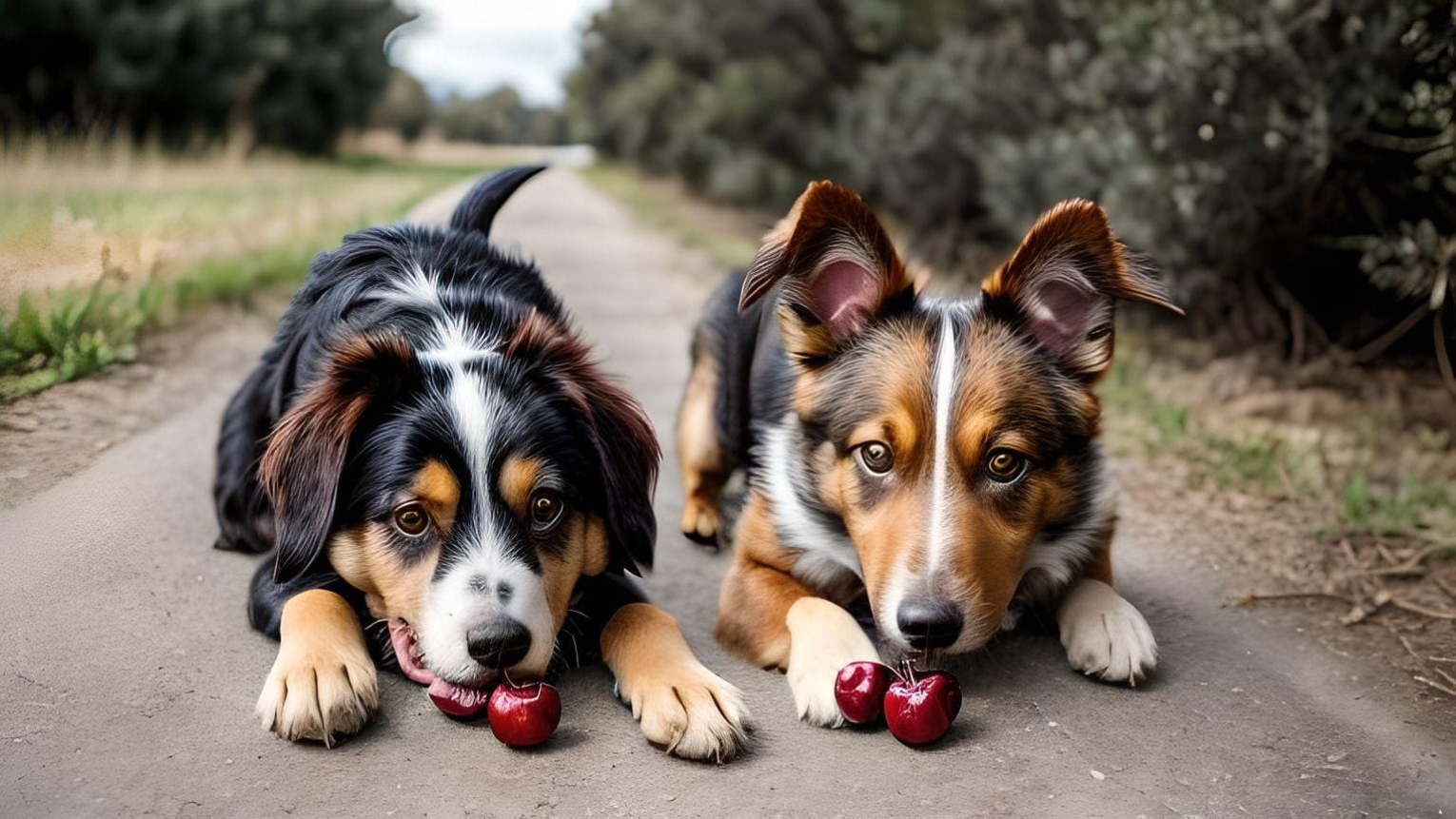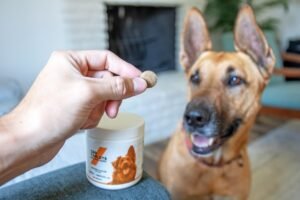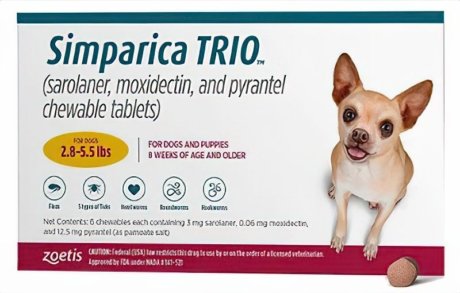Can Dogs Eat Cherries: A Comprehensive Guide to Cherry Safety for Dogs
As a responsible and caring dog owner, you’re always on the lookout for what’s safe and healthy for your four-legged friend. The internet is a treasure trove of information about pet diets and nutrition, and it’s not uncommon to come across videos and articles showcasing dogs indulging in various fruits and vegetables. One such fruit that often catches the eye is the cherry, with its tantalizing sweetness and vibrant colors. But before you let your dog take a bite, it’s crucial to answer the burning question: “Can dogs eat cherries?”
In this extensive guide, we will explore the safety of cherries for dogs in great detail. From the nutritional value of cherries to the potential risks and complications associated with their consumption, we’ll leave no stone unturned. By the time you finish reading, you’ll have a comprehensive understanding of whether cherries can find a place in your dog’s diet.
Introduction to Cherries
As a dog owner, your primary concern is the well-being of your furry companion. You want to provide them with the best nutrition to keep them healthy and happy. Fruits and vegetables can be a valuable addition to your dog’s diet, but it’s essential to be well-informed about which ones are safe. Cherries, often associated with summer picnics and delicious desserts, might seem like a tempting choice. However, their safety for dogs is a topic that requires careful consideration.
The Nutritional Value of Cherries
Cherries are undeniably nutritious for humans. They are a rich source of vitamins and antioxidants, particularly vitamin C, fiber, and various essential minerals. But does this nutritional profile hold the same benefits for our canine friends?
Can Dogs Eat Cherries?
The straightforward answer is no; dogs should not consume cherries. While the flesh of the cherry itself may seem harmless, there are several potential risks and dangers associated with cherries for dogs. Let’s dive deeper into these concerns.

Can Dogs Eat Cherry Tomatoes
Cherry tomatoes are a popular addition to salads and snacks, but can dogs eat cherry tomatoes safely? The answer is yes, in moderation. Cherry tomatoes are not toxic to dogs, but they should be given as an occasional treat. Make sure to cut them into small, manageable pieces to avoid choking hazards, and always remove the stems and leaves. Keep an eye on your dog for any adverse reactions, and if you notice any digestive issues, it’s best to avoid feeding them cherry tomatoes in the future.
Can Dogs Eat Cherries Without Pits
Yes, dogs can safely eat cherries without pits. While the flesh of cherries is not toxic to dogs, the pits contain cyanogenic compounds that can release cyanide when ingested. To ensure your dog’s safety, always remove the pits before giving them cherries. Remember to feed cherries in moderation and monitor your dog for any adverse reactions.
Can Dogs Eat Cherries Without Seeds
Cherries without seeds are a safer option for dogs. As mentioned earlier, cherry pits contain cyanide-producing compounds, making them a choking hazard and a potential source of toxicity. When offering cherries to your dog, opt for seedless varieties or remove the seeds to prevent any risks. However, even without seeds, cherries should be given sparingly as an occasional treat.
Can Dogs Eat Dried Cherries
Dried cherries may seem like a convenient and tasty treat, but they are not the best choice for dogs. Dried fruits, including cherries, are often high in sugar and can lead to digestive issues and obesity in dogs. Additionally, dried cherries may contain sulfites, which can be harmful to some dogs. It’s best to avoid giving dried cherries to your furry friend and opt for fresh, pitted cherries in moderation.
Can Dogs Eat Maraschino Cherries
Maraschino cherries are typically soaked in a sugary syrup and are not suitable for dogs. The high sugar content and artificial additives in maraschino cherries can be harmful to your canine companion. It’s best to steer clear of these sweet treats and choose fresh, natural cherries as an occasional, safe alternative.
Can Dogs Eat Black Cherries
Black cherries, like other varieties of cherries, should be given to dogs with caution. While the flesh of black cherries is not toxic, the pits contain cyanide-producing compounds. Always remove the pits and offer black cherries in moderation. Monitor your dog for any adverse reactions and consult your veterinarian if you have concerns about cherry consumption.
Can Dogs Eat Cherry Pie
Cherry pie is a delightful dessert for humans, but it’s not suitable for dogs. Most cherry pies are loaded with sugar, butter, and other ingredients that can be harmful to dogs. Feeding your dog cherry pie can lead to digestive upset, obesity, and other health issues. It’s best to resist sharing this indulgence and opt for dog-friendly treats instead.
Can Dogs Eat Bing Cherries
Bing cherries are a popular sweet variety, but can dogs eat Bing cherries? Like other cherries, Bing cherries should be offered in moderation and without pits. Their sweet flavor can be appealing to dogs, but it’s essential to limit the quantity to prevent potential digestive issues and cyanide exposure from the pits.

Can Dogs Eat Fresh Cherries
Fresh cherries can be a refreshing and healthy treat for dogs when given in moderation. They are a good source of vitamins and antioxidants. Remember to remove the pits, stems, and leaves before offering fresh cherries to your dog. Additionally, consider your dog’s individual tolerance and monitor for any adverse reactions.
Can Dogs Eat Cherry Yogurt
Cherry yogurt can be a tempting option, but it’s crucial to be cautious when offering it to your dog. Many flavored yogurts, including cherry-flavored ones, contain added sugars and artificial sweeteners that can be harmful to dogs. Plain, unsweetened yogurt is a safer choice if you want to give your dog a dairy treat. However, always consult with your veterinarian before introducing new foods into your dog’s diet.
Can Dogs Eat Rainier Cherries
Rainier cherries, with their unique yellow and red coloring, are safe for dogs to eat in moderation. As with other cherry varieties, remove the pits and offer Rainier cherries as an occasional treat. Keep in mind that while they may be less common, Rainier cherries carry the same potential risks, so exercise caution when sharing them with your furry friend.
Can Dogs Eat Cherry Ice Cream
Cherry ice cream, like other ice cream flavors, is generally not recommended for dogs. Commercial ice cream often contains high levels of sugar, artificial flavors, and dairy, all of which can be problematic for dogs. Consuming ice cream can lead to upset stomach, obesity, and other health issues. If you want to treat your dog, consider making homemade, dog-friendly frozen treats using safe ingredients.
Can Dogs Eat Cherry Plums
Cherry plums, also known as Myrobalan plums, are a type of fruit that resembles cherries but belongs to the plum family. While they are not toxic to dogs, it’s essential to introduce them in moderation and without pits. Keep a close eye on your dog for any adverse reactions, as some dogs may have sensitivities to certain fruits. As always, consult your veterinarian if you have concerns about specific foods in your dog’s diet.
Can Dogs Eat Cherry Seeds
No, dogs should never eat cherry seeds. Cherry seeds, also known as pits, contain cyanogenic compounds that can release cyanide when ingested. Cyanide is a highly toxic substance that can have severe health consequences and even be fatal for dogs. Always ensure that cherries are pitted and seedless before offering them to your canine companion.
Can Dogs Eat Cherries From A Tree
Cherries directly from a cherry tree should be approached with caution. While the fruit itself is not toxic, there may be potential risks associated with cherries from a tree. They could be contaminated with pesticides or other chemicals. To be safe, it’s best to offer cherries that you have sourced from a reliable, pesticide-free source, and always remove the pits before giving them to your dog.
Can Dogs Eat Sweet Cherries
Sweet cherries, such as Bing cherries, Rainier cherries, and Black cherries, can be offered to dogs in moderation. As mentioned before, remove the pits and any stems or leaves to ensure your dog’s safety. Sweet cherries are generally safe when provided as an occasional treat, but keep in mind that individual dogs may have different tolerances to certain fruits.
How Many Cherries Can A Dog Eat
The quantity of cherries that a dog can safely consume varies from dog to dog. It’s essential to keep portions small and offer cherries as an occasional treat rather than a regular part of their diet. As a general guideline, a few cherries (pitted and sliced) as an occasional snack should be safe for most dogs. However, it’s crucial to monitor your dog for any adverse reactions, especially if they are trying cherries for the first time. If you have concerns, consult with your veterinarian for personalized guidance.
Can Dogs Eat Cherry Flesh
Yes, dogs can eat the flesh of cherries safely, as it is not toxic to them. However, it’s essential to remove the pits, stems, and leaves before offering cherry flesh to your dog. The flesh of cherries can be a tasty and refreshing treat when given in moderation. Be attentive to your dog’s response, and if you notice any digestive issues or adverse reactions, discontinue feeding cherries.
Can Dogs Eat Black Cherry Yogurt
Black cherry yogurt should be given to dogs with caution due to potential added sugars and artificial sweeteners. As a rule of thumb, it’s safer to offer plain, unsweetened yogurt if you want to incorporate dairy into your dog’s diet. Always consult with your veterinarian before introducing new foods or treats, especially those with added flavors or ingredients that may not be suitable for dogs. Your veterinarian can provide personalized dietary recommendations for your furry friend.
The Dangers of Cherry Consumption to Dogs

1. Cyanide Poisoning
One of the most significant dangers of cherries for dogs is the presence of cyanide. Cherry pits, stems, and leaves contain cyanogenic compounds that can release cyanide when ingested. Cyanide is a highly toxic substance that can have severe health consequences and even be fatal when consumed in significant quantities.
2. Choking Hazard
Apart from the risk of cyanide poisoning, cherry pits present another danger to dogs: they are small and can pose a choking hazard. If a dog swallows a cherry pit whole, it can become lodged in their throat or digestive tract, leading to blockages and requiring immediate medical attention.
Potential Risks and Complications in Cherries for Dogs
Signs of Cherry Toxicity in Dogs
Recognizing the signs of cherry toxicity in dogs is crucial for their well-being. Symptoms may include:
- Difficulty breathing
- Dilated pupils
- Vomiting
- Diarrhea
- Increased heart rate
- Seizures
- Coma
If you suspect that your dog has consumed cherries and is displaying any of these symptoms, seek immediate veterinary care.
Safe Alternatives to Cherries for Dogs
While cherries are off the menu for your furry friend, there are plenty of safe fruit options that you can offer them. Some excellent alternatives include:
1. Apples
Apples are a fantastic source of vitamins and fiber for dogs. They are safe to eat, as long as the seeds and core are removed.
2. Blueberries
Blueberries are packed with antioxidants and are small enough to be given as treats or added to your dog’s food.
3. Strawberries
Strawberries are another tasty and safe option. They provide vitamins and fiber without the risks associated with cherries.
4. Watermelon
Watermelon, without seeds and rind, is a hydrating and refreshing snack for dogs on hot summer days.
Moderation is Key
When introducing new foods to your dog’s diet, moderation is essential. Even safe fruits should be given in small, manageable quantities. A sudden change in diet can upset your dog’s stomach, leading to digestive issues.
Precautions for Feeding Cherries to Dogs
If you still want to share a small amount of cherry with your dog, take these precautions:
- Remove the pit, stems, and leaves thoroughly.
- Cut the cherry into small, manageable pieces.
- Monitor your dog closely for any adverse reactions.
Preparing Cherries for Dogs
Before sharing cherries with your dog, ensure they are pitted, sliced, and completely free from stems and leaves. Minimizing potential risks is crucial when it comes to your dog’s safety.
Expert Advice on Feeding Cherries to Dogs: A Veterinarian’s Perspective
To provide you with further insight into the topic, we sought the expert opinion of Dr. Sarah Johnson, a renowned veterinarian with years of experience in pet nutrition and health.
Dr. Johnson emphasizes that cherries should be strictly avoided in a dog’s diet due to the potential risks involved. She explains that cyanide poisoning can lead to life-threatening complications and underscores the importance of being vigilant when it comes to your pet’s diet. According to her, opting for safe and approved fruits is the best way to ensure your dog’s health and well-being.
The Bottom Line on Feeding Cherries to Dogs
When it comes to your beloved canine companion, their health and safety should always be the top priority. Cherries may be a delightful human treat, but they have no place in your dog’s diet. Stick to safe and vet-approved alternatives, and remember that a healthy dog is a happy dog.
Conclusion:
In conclusion, cherries may be a delightful treat for humans, but they are not suitable for our canine companions. The potential dangers associated with cherry consumption, such as cyanide poisoning and choking hazards, far outweigh any potential benefits. Instead, opt for safe alternatives like apples, blueberries, or strawberries when treating your dog to a fruity snack.
Frequently Asked Questions:
-
Can dogs eat any part of the cherry?
No, dogs should not consume any part of the cherry, including the fruit, pit, stems, or leaves, due to the risk of cyanide poisoning and choking hazards.
-
How many cherries are safe for dogs to consume?
It’s best not to give your dog cherries at all. Even a small amount can be harmful. Choose safer fruit options like apples, blueberries, or strawberries.
-
Are there any dog breeds more susceptible to cherry toxicity?
All dog breeds are at risk of cherry toxicity, so it’s essential to avoid giving cherries to any breed.
-
What should I do if my dog accidentally eats cherries?
If your dog consumes cherries and displays any adverse reactions, such as vomiting, diarrhea, or difficulty breathing, seek immediate veterinary assistance.
-
Can dogs have cherry-flavored products?
It’s best to avoid giving your dog cherry-flavored products, as they often contain artificial ingredients and sugars that can be harmful to dogs’ health.
Recommended:
English Cream Dachshund | Breed Profile, Prices, 5 Types, Care Tips, Health
Merle French Bulldogs | Breed Information, Price, 10 Facts, Care Tips, Health





























